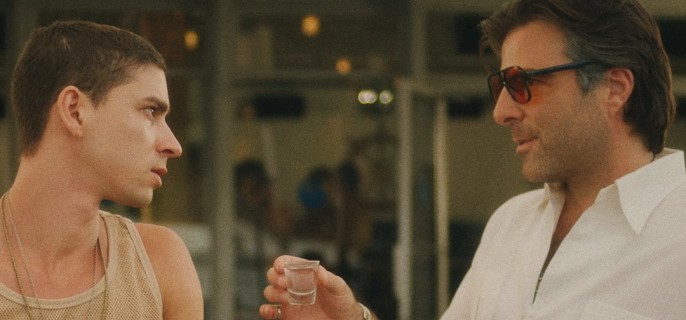American Horror Story has always been a chaotic masterpiece, a mishmash of bitingly sharp characters, titillatingly sexual imagery, and obscure pop-culture references—all for the sheer joy of camp. It is a veritable playground for the imagination, a true reflection of its name, brimming with rich literary devices that can be dissected or simply enjoyed. More importantly, it is undeniably American, relentlessly interrogating the long tradition of shaping what it means to be so.

Throughout its runs, the show has delved into suburban paranoia, domestic fantasy, the enduring legacy of slavery and racial terror, disciplinary institutions, and madness—among countless other themes. There is often no narrative cohesion to this cacophony, mirroring the disjointed nature of our history itself. Yet, despite its tendency to show its hand too early—with a powerful first episode packed with all the elements for a haunting drama—I feel a mild confidence that this 11th season is not yet losing its way. Instead, there is a rare sense that we are just getting started.
The murders and the illness drive this season's mysteries, but we are also repeatedly reminded of an overarching, even more sinister problem: that all of this is being perpetrated by a governmental force. The illness may have been intentionally created and distributed by Nazi scientists for the U.S. government in Operation Paperclip (a real-life operation, also mentioned as the background of Dr. Arden in Asylum), but whether that is the truth and how exactly the illness is being perpetuated now remains shrouded in mystery. With the murders, it's clear that the police are homophobically unwilling to properly investigate the case. In the latest episodes, however, we become increasingly suspicious that Detective Patrick, who has seemed invested in solving the case, may be wrapped up in this sinister web too.
We also currently have three villains—a number destined to grow—with Zachary Quinto's Sam presented more as a sexual predator and sadist than a killer, though he still bears the potential for murder. Big Daddy stands as both a ghostly harbinger of death and the perpetrator himself, silently watching as Sam's dungeon slave escapes while definitely being the one who set fire to the lovely gay bar and attacked Detective Patrick in Central Park. Meanwhile, Jeff Hiller's Mr. Whitley is undeniably the Mai-Tai Killer, his killings driven by serial killer perversions and the thrill of the hunt but also by a sense of duty, sacrifice, and maybe even a desire to bring attention to the gay community that makes Whitley a truly compelling serial killer.

